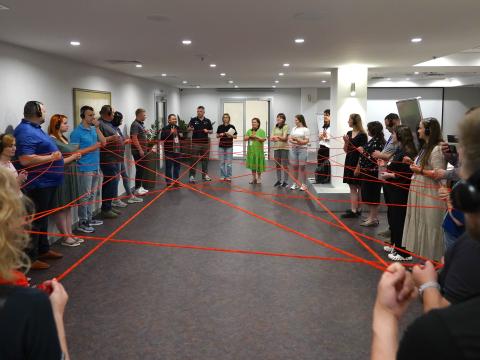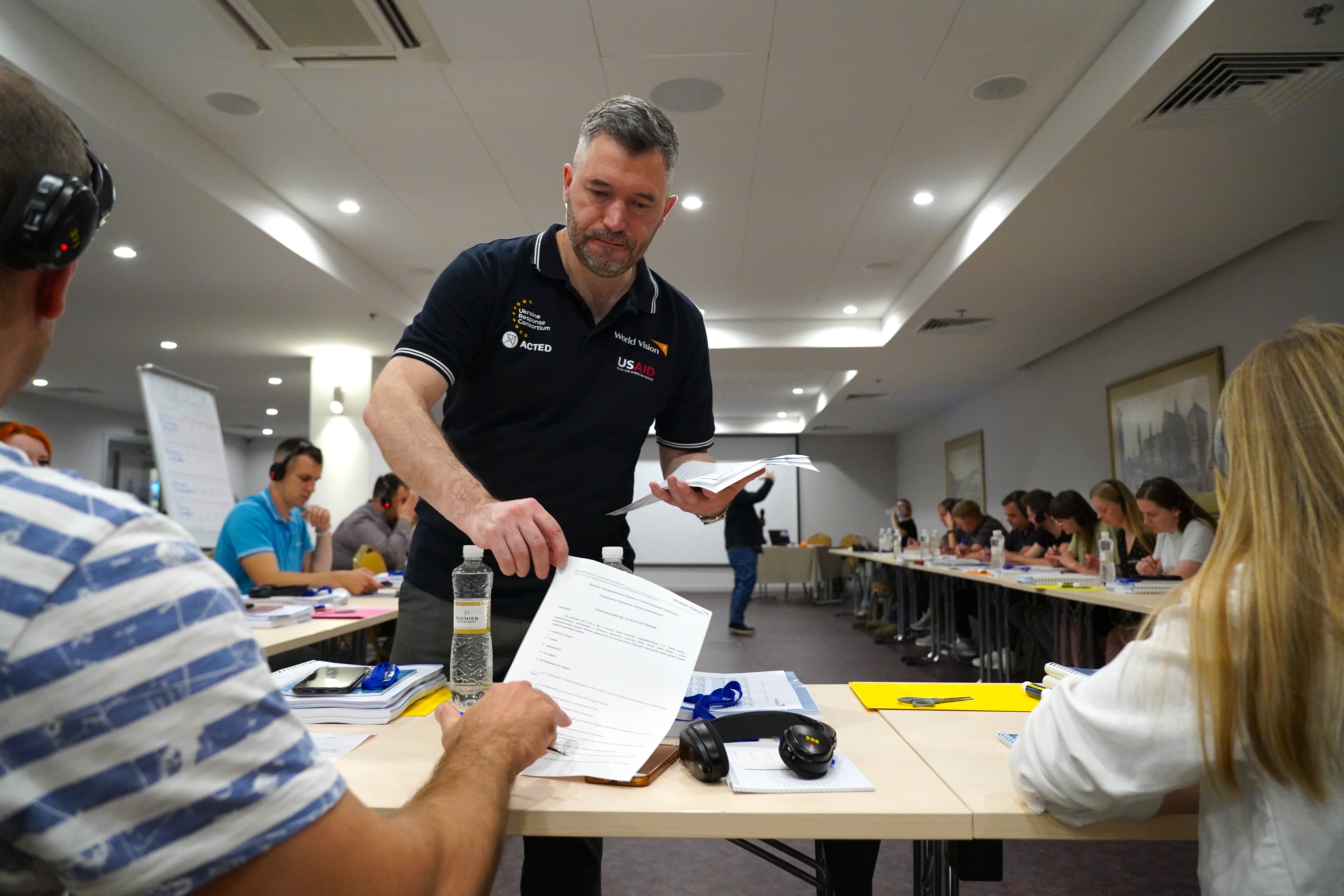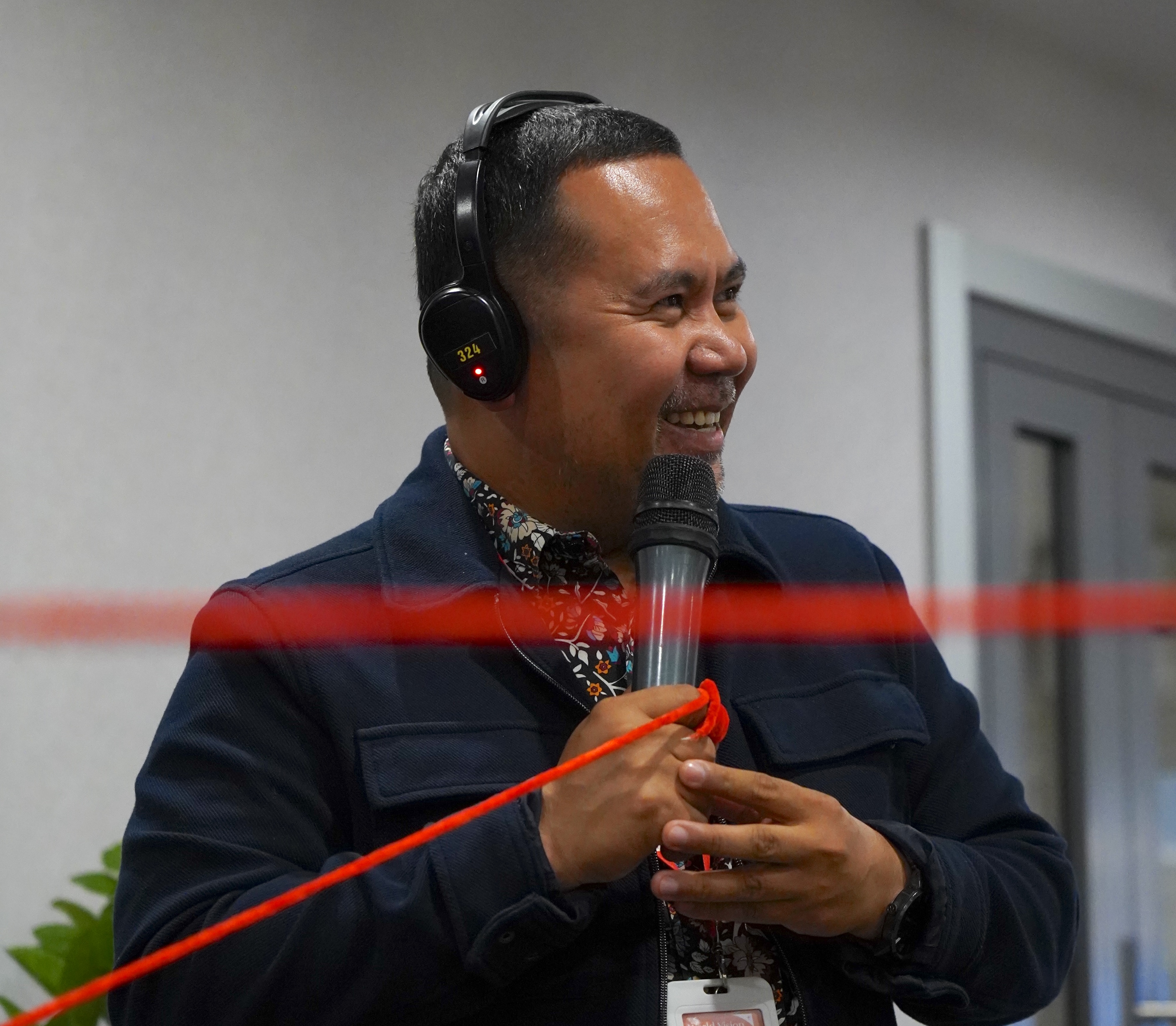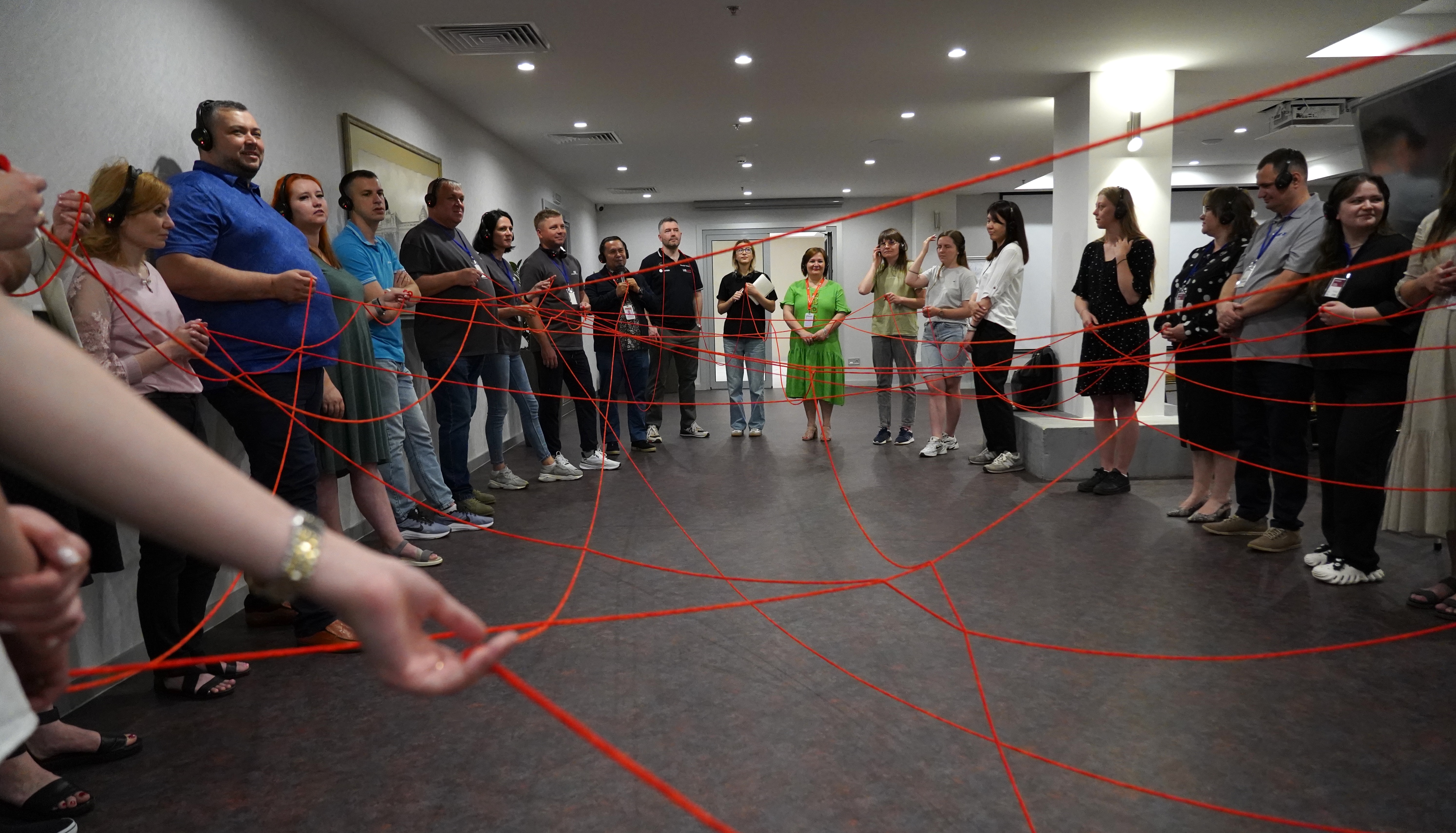33 faith and youth leaders in Ukraine undergo final session on Psychological First Aid

Lviv, Ukraine - Thirty-three Ukrainian faith leaders are taking part in the final five-day training on Psychological First Aid in Lviv, Ukraine, led by Aladin Borja, World Vision’s Mental Health and Psychosocial Support Technical Advisor. The first leg of the training was launched last April 2024.
The training, supported by USAID’s Bureau for Humanitarian Assistance, ACTED Ukraine and the Ukraine Response Consortium, is based on low-intensity psychological interventions designed to equip participants with tools and techniques for managing stress in adversity, strengthening social support, and utilizing self-help methods.

The participants, including faith leaders, community volunteers and humanitarian workers, are based in different regions of Ukraine, particularly in areas with high numbers of internally displaced families and communities near the frontlines.
Low-intensity psychological interventions are structured yet flexible approaches aimed at providing mental health support to individuals experiencing mild to moderate psychological distress.
Upon returning to their communities, these leaders will apply the learned psychological interventions to train and support those most affected by the war.
Problem Management Plus (PM+) is one such intervention, offering strategies to manage stress and cope with problems, while Self Help+ focuses on self-guided techniques to enhance emotional well-being and resilience.
These interventions are useful in settings with limited mental health resources because they can be provided by trained non-specialists.

This training builds on a previous session aiming to improve the capacity of key community people working with war-affected populations. By equipping faith leaders, youth leaders, and volunteers with practical skills in social and emotional learning, they can provide the needed support to traumatized individuals.
Upon returning to their communities, these leaders will apply the learned psychological interventions to train and support those most affected by the war, fostering resilience and mental well-being at the grassroots level.

Story by Communications Manager Laurentia Jora I Photos by Communications Officer Oleksandr Sphygunov